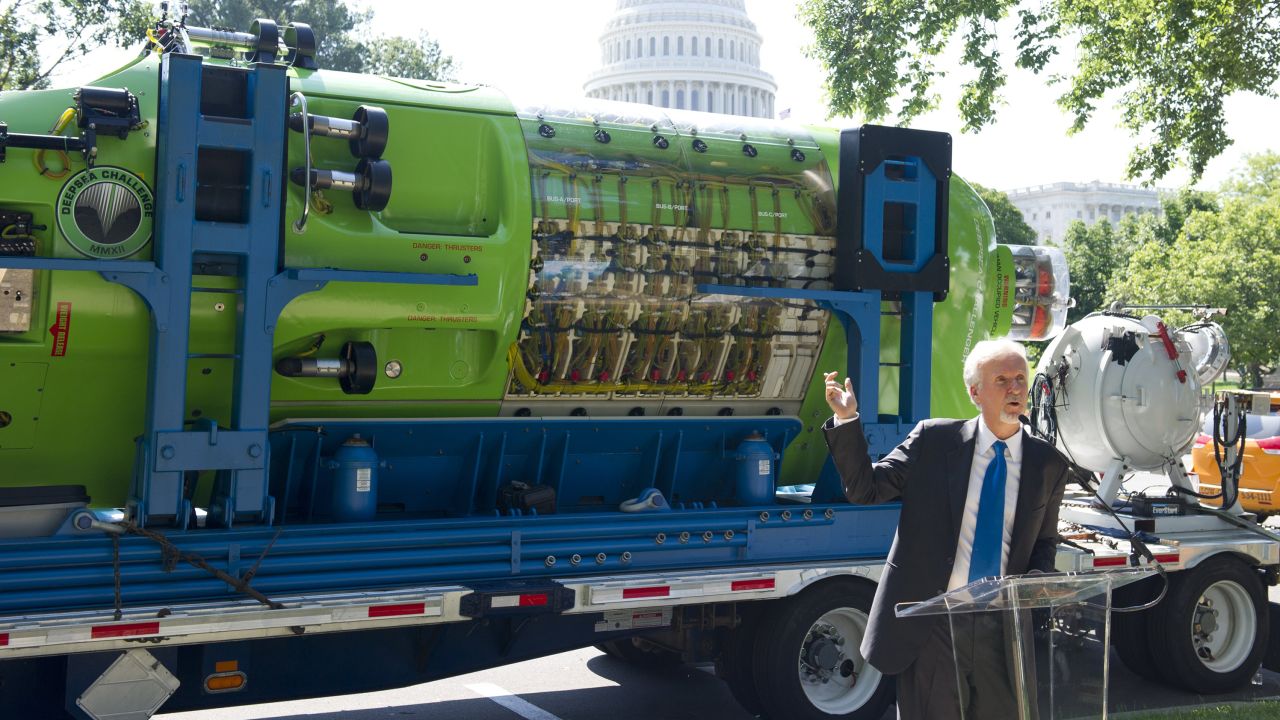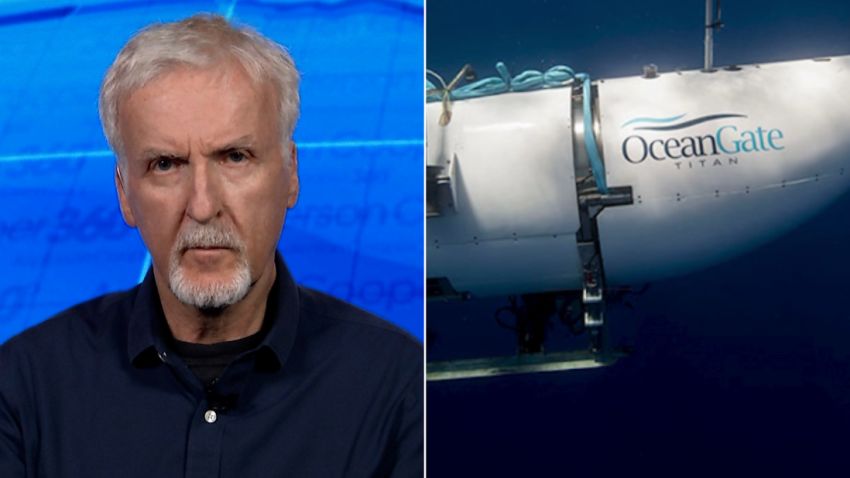There was a 13-year gap between the first “Avatar” movie in 2009 and its sequel, “Avatar: The Way of Water,” during which time filmmaker James Cameron indulged in another of his passions: deep sea exploration.
Cameron, who is also the director of the Oscar-winning movie “Titanic,” has shared his perspective on the “catastrophic implosion” that killed five aboard the Titan submersible on its way to tour the Titanic wreckage.
“The only scenario that I could come up with in my mind that could account for that was an implosion – a shock wave event so powerful that it actually took out a secondary system that has its own pressure vessel and its own battery power supply, which is the transponder that the (mother) ship uses to track where the sub is,” Cameron told CNN’s Anderson Cooper on Thursday.
Having made more than 30 dives to the Titanic wreckage and among the very few people who have descended to the deepest known point in the Earth’s seabed, Cameron’s expertise in underwater exploration began decades ago.
An ocean lover
Cameron told National Geographic that while he grew up in Ontario, Canada, hundreds of miles from the ocean, as a youngster he watched with “amazement” sea explorer Jacques Cousteau’s specials.
The youngster would also track a then new deep-sea submersible named Alvin.
“It was such a golden age of technological exploration,” Cameron said of the time.
He began scuba diving at age 17, which increased his love of ocean exploration.
Cameron told NPR in 2012 that there is a connection between what he does professionally in films and his personal life as an explorer.
“I think the through-line there is storytelling,” he said. “I think it’s the explorer’s job to go and be at the remote edge of human experience and then come back and tell that story. So I don’t see them as that separately.”
The motivation behind his movies
While he is known as one of the top directors in the industry, Cameron may be even more dedicated to deep-sea exploration, as has been reflected in his films.
His 1989 film “The Abyss” was set in the ocean and Cameron has said he made “Titanic” in part to explore the wreck.
“I made ‘Titanic’ because I wanted to dive to the shipwreck, not because I particularly wanted to make the movie,” he told Playboy in 2009. “The Titanic was the Mount Everest of shipwrecks, and as a diver I wanted to do it right. When I learned some other guys had dived to the Titanic to make an IMAX movie, I said, ‘I’ll make a Hollywood movie to pay for an expedition and do the same thing. I loved that first taste, and I wanted more.”
He told National Geographic that he prefers diving himself to filming it.
“Doing it for real is much better,” he said. “But it has problems, because there’s no second take!”
Record breaking exploration
Along with his exploring, Cameron fell in love with the technology that makes deep-sea diving possible.

When he traveled to the Mariana Trench, considered one of the deepest spots in the Earth’s oceans at almost seven miles below the surface, he did it in a 24-foot submersible vehicle he helped design, the Deepsea Challenger.
By traveling 35,787 feet to the deepest point on Earth Cameron broke the record for the longest solo dive.
It took seven years of planning and he spent more than three hours filming, documenting and taking samples while he was there.
Cameron likened it to space exploration and called it a “vast frontier down there that’s going to take us awhile to understand.”
“It was very lunar, very desolate place, very isolated,” he said. “My feeling was one of complete isolation from all of humanity. I literally felt like in the space of one day I had gone to another planet and come back.”

